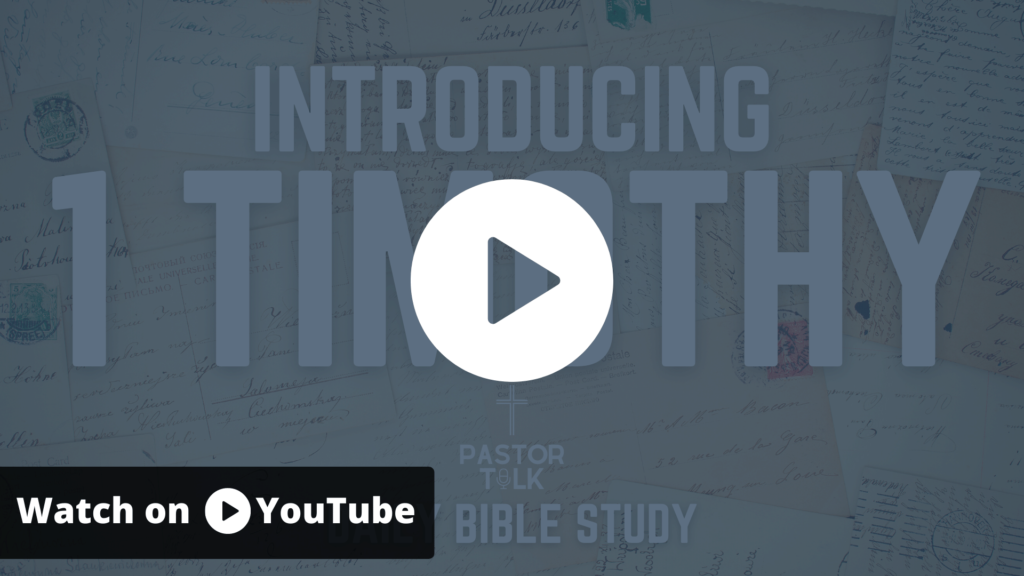
Pastors Clint and Michael explore some of the basic background history of 1 Timothy that will be relevant for our upcoming study. They discuss the Apostle Paul, Timothy, some historical questions about authorship, some difficult sections for modern interpreters, and yet, the universal depth of wisdom spread throughout the entire book. You won’t want to miss this introduction to the beginning of our newest Bible study series!
Be sure to share this with anyone who you think might be interested in going along on this journey together through 1 Timothy together.

Pastor Talk Quick Links:
- Learn more about the Pastor Talk series and view our previous studies at https://pastortalk.co
- Subscribe to get the Pastor Talk episodes via podcast, email and much more! https://pastortalk.co#subscribe
- Questions or ideas? Connect with us! https://pastortalk.co#connect
- Interested in joining us for worship on Sunday at 8:50am? Join us at https://fpcspiritlake.org/stream
